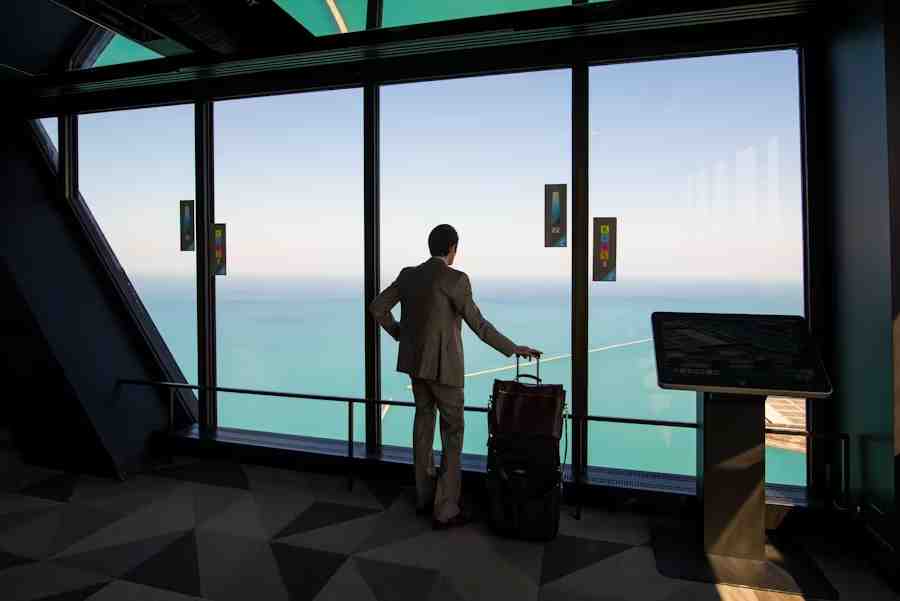Business Travel Essentials in Europe

Traveling for business in Europe offers a unique mix of opportunities and challenges. The continent's rich history, diverse cultures, and interconnected economies make it a prime destination for corporate travelers. However, successfully navigating its complex tapestry requires more than just a plane ticket and a hotel reservation. From understanding VAT reclamation to mastering public transport, a well-prepared traveler is an effective traveler.
This guide provides practical insights and actionable tips to ensure your business trips to Europe are productive, efficient, and culturally sensitive. Whether you're a seasoned globetrotter or planning your first trip across the Atlantic, these essentials will help you travel with confidence.
Mastering European Logistics
Getting around Europe efficiently is key. While the continent is relatively compact, moving between countries and cities involves specific knowledge.
-
Rail Travel is Your Friend: For trips between major cities like Paris to Brussels, London to Paris, or Amsterdam to Frankfurt, high-speed rail is often faster, more comfortable, and more cost-effective than flying. You travel from city center to city center, avoiding the time and expense of getting to and from airports. Book tickets in advance for the best prices, especially on popular routes.
-
Navigating Public Transportation: Major European cities boast some of the world's best public transportation systems. The metro in Paris, the Tube in London, and the U-Bahn in Berlin are fast and efficient ways to get around. Encourage your team to use these systems. Purchase multi-day passes for convenience and cost savings. Ride-sharing services are widely available but can be expensive, especially in city centers with congestion charges.
-
Understanding VAT (Value Added Tax): VAT is a consumption tax included in the price of most goods and services. For business travelers, a significant portion of this tax on expenses like hotels, meals, and conference fees can often be reclaimed. This can represent savings of up to 25%. Using a travel management platform that automates VAT tracking and partners with a reclamation service is crucial. It turns a complex administrative task into a significant source of savings.
Cultural Etiquette and Business Norms
Cultural awareness is not just a soft skill; it's a business necessity. What works in a boardroom in New York might not land the same way in Frankfurt or Milan.
-
Punctuality is Paramount: In German-speaking countries and Scandinavia, punctuality is taken very seriously. Being even a few minutes late can be seen as disrespectful. In Southern European countries like Spain or Italy, there may be a slightly more relaxed attitude, but it's always best to be on time.
-
Business Card Etiquette: In many European cultures, the exchange of business cards is a formal ritual. In Germany, take a moment to read the card you receive before putting it away. In the UK, it's slightly less formal but still an expected part of an introduction.
-
Gift Giving: Business gift-giving is less common in Europe than in some parts of Asia or the Middle East. If you do give a gift, it should be small and tasteful. A book about your home city or a high-quality pen is often a good choice. Avoid anything too extravagant, as it could be misinterpreted.
-
Dining and Socializing: Business is often conducted over meals, but the style can vary. In France, a long lunch is a common part of building a relationship. In the UK, a trip to the pub after work can be an important social ritual. Let your host take the lead on when to start discussing business.
Practical Tips for a Smooth Trip
-
Pack Light and Smart: With the rise of low-cost carriers, baggage fees can be steep. Pack a versatile wardrobe and try to stick to a carry-on if possible. Remember a universal power adapter.
-
Stay Connected: Purchase a European SIM card or an eSIM upon arrival for affordable and reliable data access. Relying on public Wi-Fi can be slow and unsecure.
-
Payment Methods: While credit cards are widely accepted, it's always a good idea to have some local currency (Euros or British Pounds) for smaller purchases or taxis.
-
Use a Modern Travel Platform: A platform like Routespring simplifies everything. It provides access to a vast inventory of flights, hotels, and rail, ensures all bookings are within your company's travel policy, and centralizes payments to eliminate out-of-pocket expenses for your team.
Traveling for business in Europe can be incredibly rewarding. By preparing for the logistical and cultural nuances, your team can focus on what they do best, building relationships and driving your business forward.
Ready to streamline your European business travel?